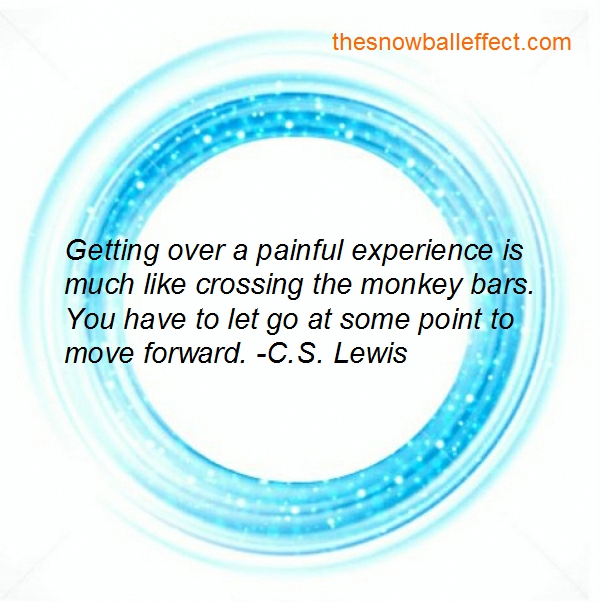The following is taken from my book The Snowball Effect: How to Build Positive Momentum in Your Life.
1. Let Go of Resentment
For a moment, visualize your body filled with poison that makes you chronically angry, takes away your energy, crushes your enthusiasm, and prevents you from experiencing joy in life. Wouldn’t you want to rid yourself of that poison? Well, that poison has a name, and its name is resentment. Resentment not only kills your spirit, but it can kill your physical body.
You see, disease is attracted to resentment. Giving up resentment and releasing it can improve your mental health, your spiritual health, and your physical health. It may even save your life. As long as you are focused on how another person harmed you, you hold on to that poison, which prevents you from being really happy. It prevents you from being the best version of yourself.
2. Obliterate Harsh Self-Judgments
One of the quickest ways to snowball in a destructive direction is to judge yourself harshly. Being cruel to yourself negatively impacts just about every aspect of your life. And just like a snowball, your insults pick up momentum and begin to knock down everything around you, including the people whom you love the most. We cannot consistently put ourselves down and be happy. If we want to build positive momentum in our lives, we must learn how to let go of that inner critic.
3. Stop Explosive Reactions
When our anger is explosive, we begin a very swift downhill slide. Explosive anger harms us, harms the people around us, and harms our lives. This intense emotion hurts us physically, mentally, and spiritually. It fills prisons, hospitals, and even cemeteries.
Explosive anger has been associated with increased risk of heart disease, high blood pressure, chronic fatigue, acid reflux and ulcers, sleeping disorders, addiction, impaired immune system, chronic headaches, increased asthma attacks, and skin irritation. It can lead to legal problems, a stressful work environment, domestic violence, isolation of family and friends, separation/divorce, raising children who are withdrawn or explosive themselves, failed relationships, incarceration, and unemployment.
If you are interested in learning how to let go of resentment, harsh self-judgments, and explosive reactions through evidence based tools and techniques, read The Snowball Effect: How to Build Positive Momentum in Your Life. Available now on Amazon and Barnes and Noble. Along with the “how to” techniques, this book is full of real stories about people who have utilized the tools and let go of the things that hold them back from finding joy in life.
Life is too short! Isn’t it time to let go of the things that are making you unhappy? Maybe you will discover that your happiness really does reside within you. Being happy is much more dependent on your attitude and your actions than your circumstances.


All very very mindful Kristin,
All egocentric cognitions initiate the sequences here. The ego, our judging comparison, computer, judging us better or worse never equal.
I have wondered how can we enjoy real happiness when our ego has lost perspective and never feeling equal, seems to me me, to eat all oxygen available to even see happy.
Happy does not seem to travel,with me when strong negative emotions have duration and a storyline.
Mindfulness would say you are describing letting go, accepting, being present, releasing responsibility for thought and judgment.
Excellent advice
Thank you, Marty. I love your statement about duration and a storyline. It makes a lot of sense to me. 🙂
Sage advice Kristin. I think in many cases people just don’t know ‘how’ to let go of resentment. They feel justified in feeling hurt or betrayed or cheated etc. Before they can be ready to let go they must get to a place of not needing or wanting to hold on. When the desire to let go is strong enough there is more motivation to try strategies that may help. One way I find useful is to change the meaning of the experience. It doesn’t matter to me if the meaning is true, I just decide that it could be true, and that is often enough to shift my sense of hurt to something else.
I also beleive that this is a powerful technique! Thanks, Stuart! 🙂